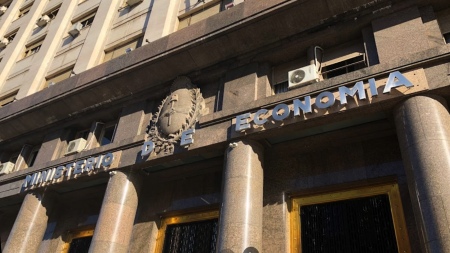The reduction in spending in real terms that is being carried out in the second half of 2022 constitutes a favorable platform for the Government to reach the goal of a primary deficit equivalent to 1.9% of the Gross Domestic Product (GDP) in 2023, according to the opinion of different economists.
After a first half with an increase in expenditures at a level higher than accumulated inflation compared to the same period in 2021, the changes in the Ministry of Economy -first with the assumption of Silvina Batakis and since August with Sergio Massa- allowed achieve fiscal order and moderation in spending.
“Public spending, first of all, has to be financeable”Claudio Caprarulo, Analytic
This not only translated into a high probability of being able to close the year with the fulfillment of the primary deficit goal of 2.5% agreed with the International Monetary Fund (IMF), but also in having a real reduction in primary spending in November accumulated for the first time in eleven months.
The year-on-year evolution of spending discounted inflation shows a sharp reversal starting in July, going from real growth of up to three digits between February and May to a decrease in the rate of increase that in November became a drop of 7.7% in the comparison of the first eleven months of 2022 against the same period of the previous year, according to measurements from the Congressional Budget Office (OPC).

what the economists say
For the executive director of the Analytica consultancy, Claudio Caprarulo, “this generates a positive aspect for the first six months of next year, because if the Government sustains this drop in spending that began in the second half of 2022, it will be able to continue showing good results for the first half of 2023, when confronted with a high comparison base such as the first half of this year”.
In statements to Télam, Caprarulo considered that “it is not that public spending is good or bad ‘per se’, but first of all It has to be bankable. And that is where one of the main problems and challenges that the Government will have to go through next year is, which is to continue obtaining resources from the market,” he said.
He also stressed that “both for a matter of macroeconomic stability and for the agreement with the IMF, financing through the Central Bank is restricted, it fell this year and has to continue falling next year.”
In any case, most of the analyzes agree that the continuation of the reduction in spending in real terms has a limit or, at least, cannot continue to occur in the proportions of recent months.
“Practically half of the cost cannot be adjusted”Rafael Flores, economist
In this regard, Nicolás Pertierra, from the Scalabrini Ortiz Center for Economic and Social Studies (CESO), warned that “on the income side, the drought will also have an impact on lower collection and the social promotion policy will continue still important, especially taking into account the electoral context”.
“The sharp reduction in recent months is explained by the fact that in the first semester spending was growing very stronglydespite the fact that some sectors indicated a supposedly conservative policy,” he added.
The increase in spending in the first semester is revealed when observing the year-on-year growth in real terms cumulatively: if in January it was 85.1% higher than in the same month of 2021, in the first two months it amounted to 210.4 % and in January-March at 409.3%.
Although as of April there was an attenuation of the increase to constant values, the percentages continued to remain high, a behavior that showed a turnaround as of August.
Along the same lines as Pertierra, the economist and consultant Rafael Flores, former president of the Argentine Association of Budget and Public Financial Administration (ASAP), warned that “practically half of the cannot be adjusted“, as they are “retirements and public salaries, in the first case indexed by law and in the second more or less in line with inflation.”
“Even if there were a drop in inflation, as retirements are updated with respect to what happened in previous months, there would be a greater weight of retirements in total spending; as inflation rises, retirees lose, but if inflation goes down, they go on to win, and that would impact spending because it is the most important item in the Budget,” he stressed.

an election year
The election year did not go unnoticed in Flores’ analysis, who maintained that “the governors will press for that the public work does not stop but quite the oppositethat there is an increase in these infrastructure expenses”.
Thirdly, he raised as an unknown “how the tariff issue is handled, if the idea is to maintain the current level and that they go up at the rate of inflation or that they liquefy as time goes by.”
Caprarulo, for his part, emphasized financial tensions in the context of a year marked by elections: “For the market to want to continue financing the deficit, the government has to show it that it will be able to pay, above all in a year when investors tend to be much more conservative.”
That is why, if the financial panorama becomes complicated and “it is necessary to give a stronger signal to investors”, there could be the possibility of overcompliance with the goal, that is, a financial deficit of less than 1.9%, although for the director of Analytica that option is “unlikely in such a particular year”.


















